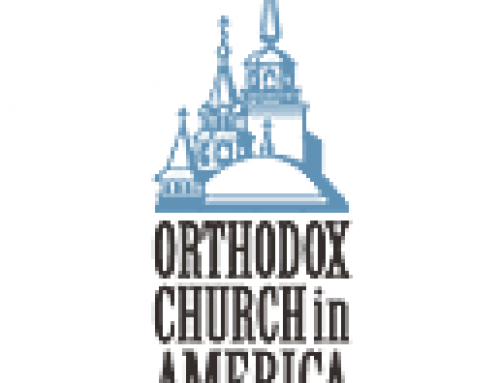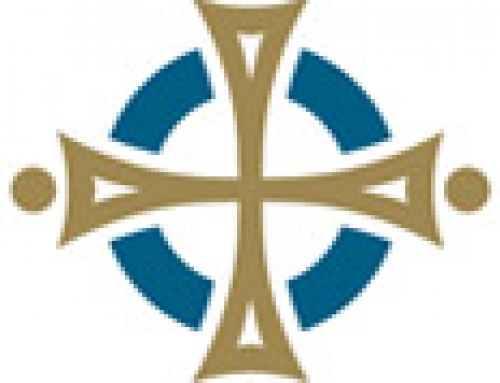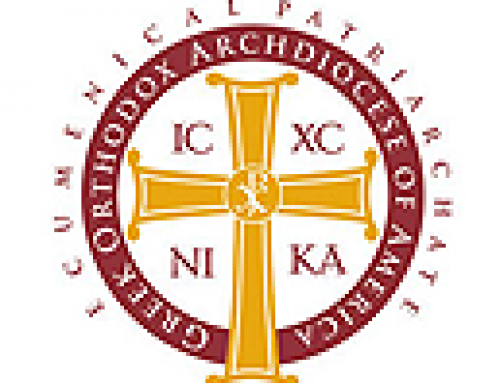This post was originally published on this site
The second in a series of meetings that will comprise the Fall 2020 Session of the Metropolitan Council of the Orthodox Church in America was convened by video conference on Wednesday and Thursday, September 16-17, 2020. The first meeting of the Fall Session took place on August 27.
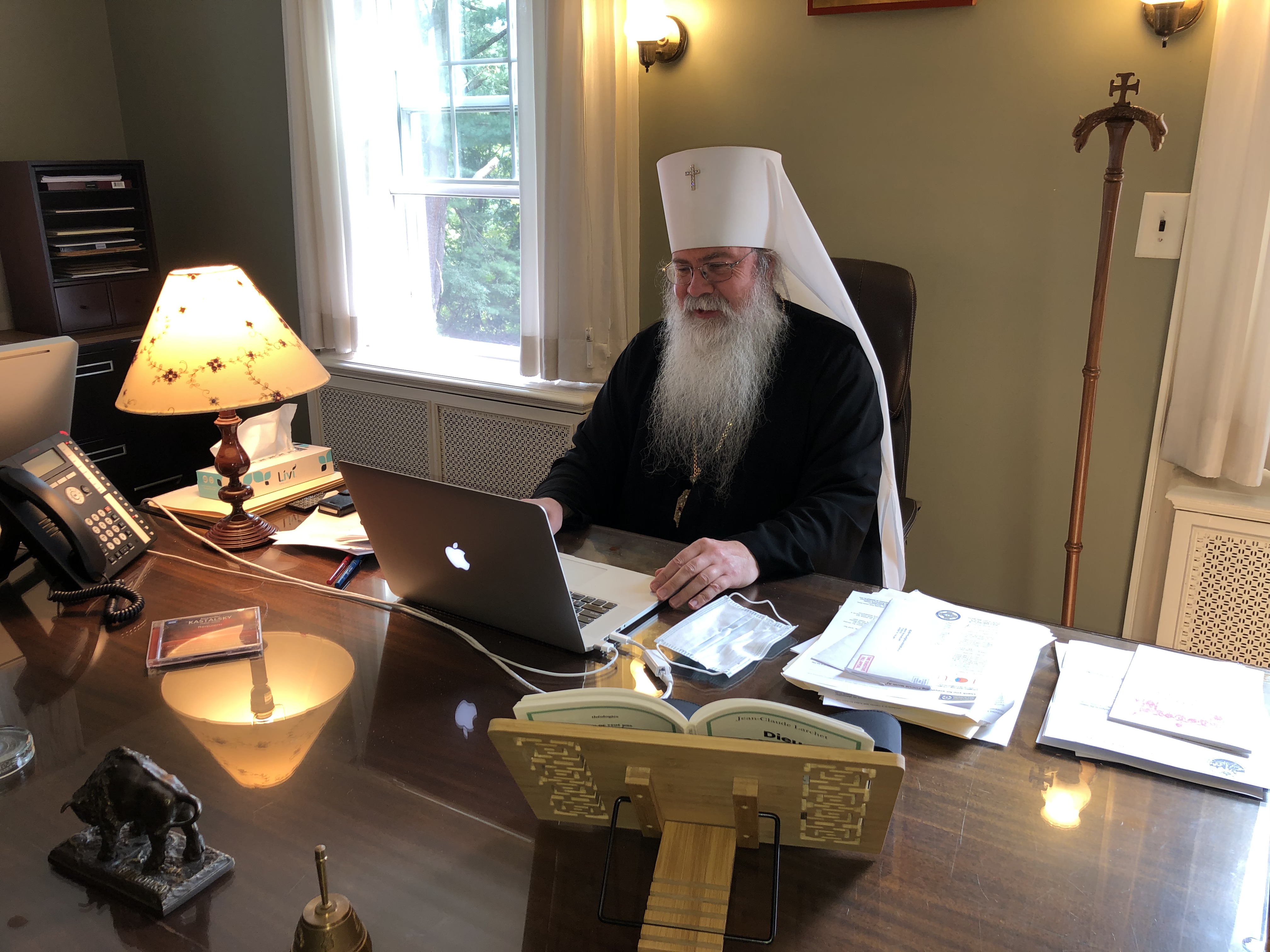
To open the meeting, His Beatitude Metropolitan Tikhon delivered his report in which he highlighted the life of the Church and his own ministry since the Spring Session of the Metropolitan Council in February, especially in the wake of the coronavirus pandemic. He commended everyone for their labors in adjusting to new circumstances resulting from the pandemic, particularly the chancery staff led by Archpriest Alexander Rentel, OCA Chancellor. He indicated the staffing changes taking place at the Chancery, including the departure of his longtime personal secretary, Archdeacon Joseph Matusiak, and the appointment of Deacon John Thetford to that position. His Beatitude reported on his two recent archpastoral visits in the Albanian Archdiocese and the Diocese of New England for the celebration of memorial services marking the first anniversary of the repose of Archbishop Nikon (Liolin). In his account of the Church’s external contacts in recent months, he noted his phone contacts with Patriarchs Bartholomew of Constantinople and Kirill of Moscow, as well as increased intensity in the work of Assembly of Canonical Orthodox Bishops in the USA. He announced that in addition to his written reflection, posted on the OCA website earlier this week, on the upcoming sale of the property in Syosset, NY, called “Westwood,” the building housing his residence and the OCA Chancery, he is also preparing video reflections on this and other topics. The complete text of Metropolitan Tikhon’s address can be found below.
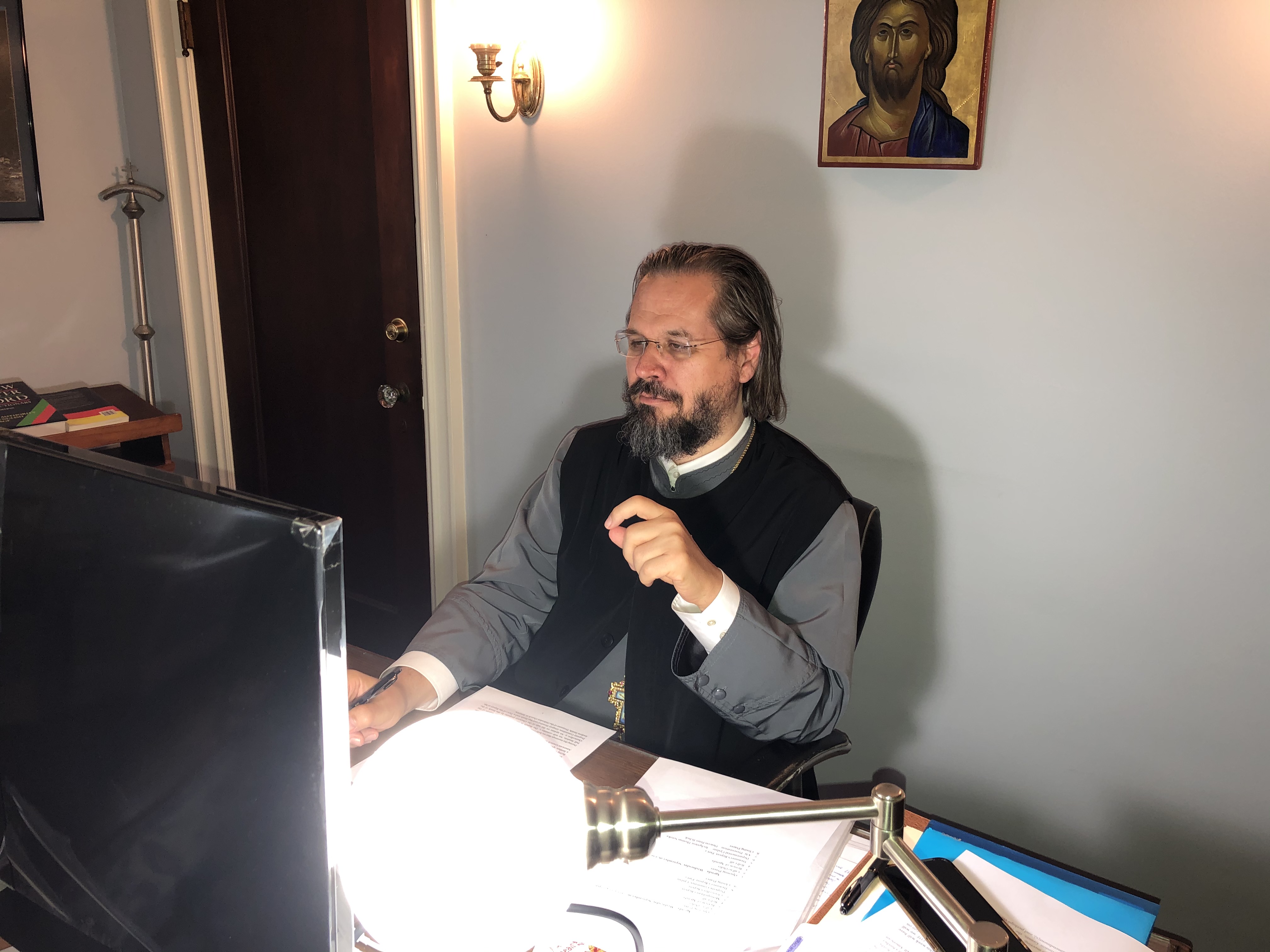
The Council then heard the report of the Chancellor, Archpriest Alexander Rentel who reviewed the meeting’s agenda, and highlighted various aspects of the Church’s Covid-19 response, staffing changes, the postponement of the 50th anniversary celebrations of the granting of autocephaly to the Orthodox Church in America and the glorification of Saint Herman of Alaska, as well as the efforts being undertaken toward the relocation of the OCA Chancery and Archives and noted the recent meeting of the Archives Advisory Committee.
The next agenda item was an update from the Property Committee presented by its co-chairman, Ray Steeb. He indicated that in fulfillment of the decision by the Metropolitan Council on August 27, a contract with the realtor was signed on August 31 and the Westwood property was listed for sale. The listing with photos may be viewed online. Interested individuals have already visited for viewing.
Wednesday’s meeting concluded with the first part of the report of the Treasurer, Mr. Andrew Smith in which he presented audited financial statements and comprehensive reports for the first half of 2020. The Council also continued discussion of the funds received by the OCA through the Paycheck Protection Program of the Coronavirus Aid, Relief and Economic Security (CARES) Act passed by Congress in March 2020. Mr. Smith indicated that the 2021 budget would be submitted for approval by the Metropolitan Council at its next meeting in October. He also noted that a virtual audit by the internal Auditing Committee would be scheduled soon.
The second part of the Treasurer’s report began Thursday’s meeting with a presentation from Mr. Frank Lou, partner at Satty, Levine & Ciacco, CPAs, P.C., the external auditing firm for the OCA, who reported on the recently conducted audit for the OCA for 2019. He indicated a clean opinion from his firm and commended the timeliness and accuracy of the OCA financial records and operations. The Metropolitan Council then voted unanimously to accept the audit report as presented.
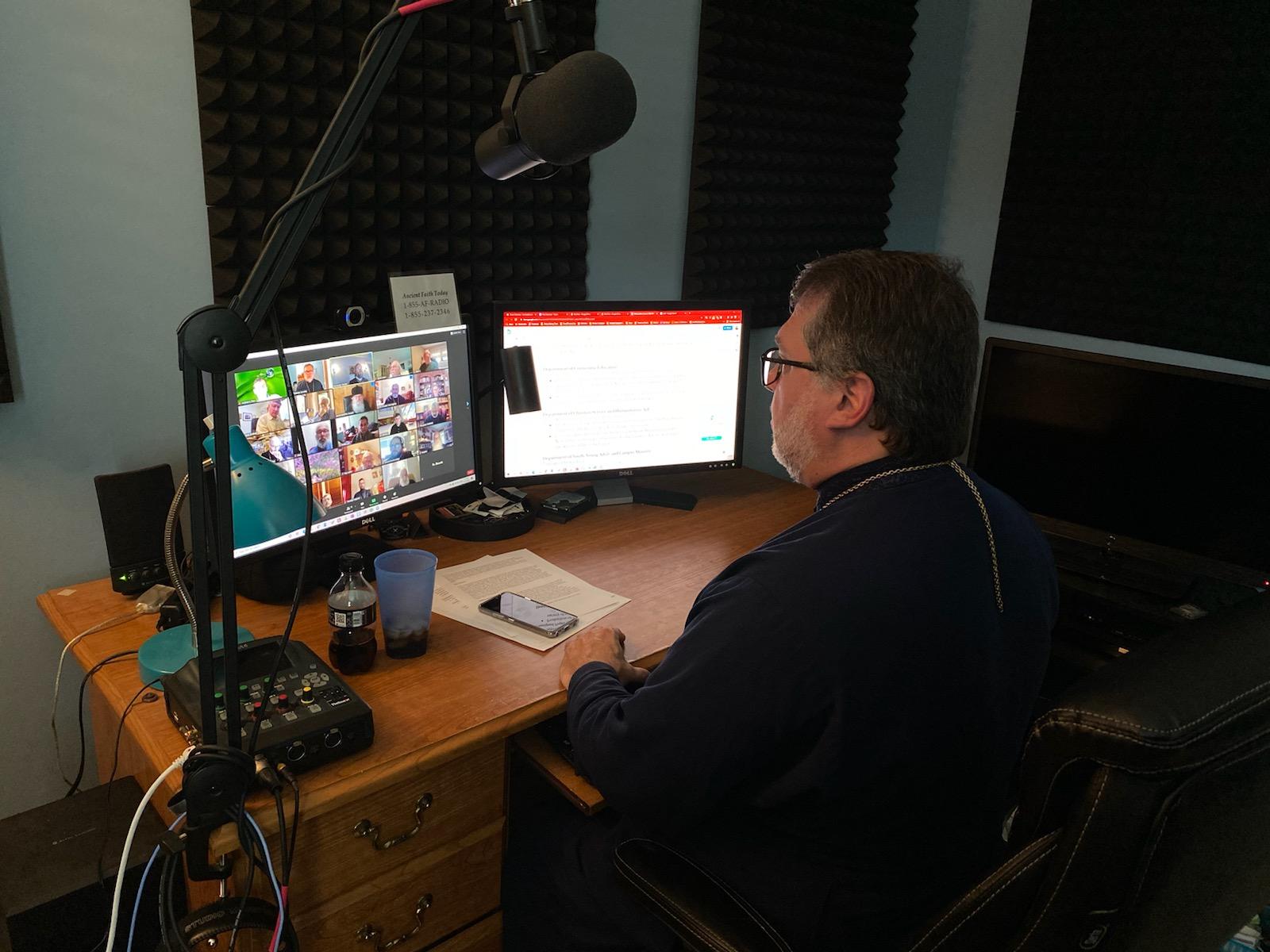
Archpriest Thomas Soroka then delivered a detailed report on his initial work as the recently appointed Project Manager of the Departments of the Orthodox Church in America. He outlined his vision and strategies for productive and cost-efficient work by the OCA departments. He indicated that department activities going forward would be project-oriented and he highlighted the approved projects currently undertaken by each department. Father Thomas also announced steps to streamline and unify the web presence of OCA departments. Finally, he briefly reported on his ongoing project coordinating the creation of a new adult catechism, consisting of 16 one-hour-long lessons, including a catechist’s guide, a catechumen’s guide, PowerPoint slides, and a list of accompanying online resources.
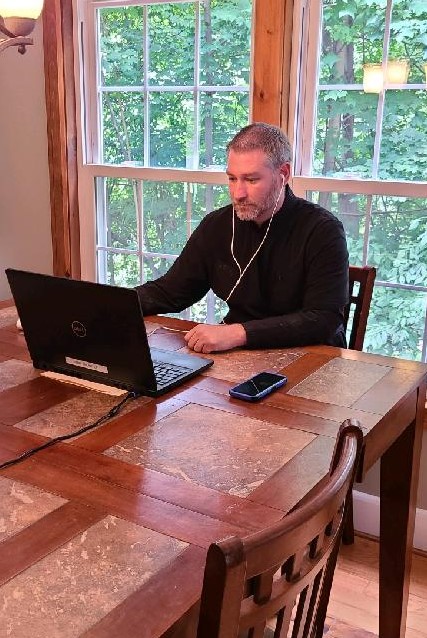
The final item for consideration at this meeting was an update on preparations for the 20th All-American Council from Deacon Peter Ilchuk, All-American Council Manager, who outlined a variety of complex issues and obstacles for convening the Council due to the pandemic. After thorough deliberation of all issues, it was decided, that due to the changing and unpredictable circumstances related to the pandemic, to defer for the time being any decision on the possibility of postponing the 20th All-American Council.
In his remarks to conclude the meeting, Metropolitan Tikhon expressed the hope that we will continue to push forward in this time of uncertainty “with hope in Christ and do not allow ourselves to be weakened. … moving from glory to glory as we labor together to fulfill the vision and mission given to us by Saint Herman and all the saints and good men and women who came after him. Amen.”
Each report was followed by extensive discussion and questions.
The next meeting of the Metropolitan Council, which is expected to conclude the Council’s Fall Session will take place by video conference on October 21. Minutes and reports from the entire Fall Session will be posted after it is concluded.
Report of the Metropolitan
1. Welcome. I welcome all of you to the second session of the Autumn Meeting of the Metropolitan Council. I am, once again, grateful for your presence on my screen this afternoon as we continue our discussions of the important matters before us. Even though I addressed the three specific issues we discussed at our first session, and which we will continue to review this week, I will offer today a more formal report as I normally would have done for a regular meeting of the Metropolitan Council and offer some broad remarks on all that has transpired since our Spring meeting in February.
2. The first months of the pandemic. As you know, the pandemic hit just shortly after our last meeting and it has more or less disrupted every aspect of church life and human existence. For the first months of the pandemic, I was in residence at the Saint Arsenius Skete which is located at Saint Tikhon’s Monastery. I was able to enjoy the isolation of the Skete but also maintain a sense of community, prayer, and worship with the brothers even in the closed community setting that continues to be maintained to this day. From there, I was able to preside at a number of divine services, particularly during Holy Week and the Paschal season, and to offer a regular word to the wider Church community that was participating via the live-stream. I am grateful to the Monastery and all those who made those live-streamed services possible, as well as to all the other monasteries and parishes, such as Holy Transfiguration Monastery in Ellwood City and Saint Nicholas Church in Mogadore (among many others). Even though there are clear limitations to live-streamed services and they cannot replace the in-person services that we are most familiar with, they have provided a crucial life-line to many people who were not, and perhaps are still not, able or willing to attend services. I have mentioned this in several places before, but I think it is important to continue to recognize and give thanks to all those who stepped up during the initial phases of the pandemic to offer services, pastoral care, creative solutions to new problems, and generally assisted their brothers and sisters in Christ to weather the storm that has been battering the entire world. I think it is also important for all of us to acknowledge the hardship that the pandemic has caused so many: from the first responders and health care workers who continue to exercise their ministries with bravery and fearlessness to the parents who have had to adjust to new and sometimes difficult circumstances, and their children. It was in this context the Holy Synod began to address the pandemic and its impact on our communities, clergy, and faithful. I feel confident that our Holy Synod was as proactive and as pastorally sensitive as could be expected during this entire time. Relying equally on their pastoral wisdom and on the input of a range of Orthodox experts in medicine, bioethics, law, and safety, the Holy Synod provided the Church with a comprehensive plan for re-opening the churches and each bishop has, since then, worked diligently and with pastoral care to address the various aspects of this crisis on the local level. We continue to communicate amongst ourselves on a regular basis and I am in the process of scheduling a meeting of the Holy Synod at the end of this month. In addition, the Standing Synod, which has also been meeting regularly, will gather virtually next week.
3. The latter months of the pandemic. In addition to the disruption in our Church life, I know that another great source of difficulty has been our separation from our family and from our friends. I have felt this myself and so, after the feast of Pentecost, I drove to my parents’ home in Elizabethtown, Pennsylvania, where I remained for two weeks. Even in a state of strict quarantine, I was able to enjoy a pleasant visit with my parents and give each other a little familial encouragement during the pandemic. At the end of June, I returned to the Chancery where I have been in residence since then, living as most of you are living – serving or attending services at Saint Sergius Chapel with a limited cohort of parishioners, shopping carefully at the grocery store, ordering take-out meals from restaurants, and taking advantage of the outdoor hiking possibilities in my area. My main work activity has been zoom meetings and telephone calls and, up until our first session, on August 27, I had only undertaken one in-person pastoral activity, which was to travel to Holy Transfiguration Monastery in Ellwood City for the Feast of Saint Herman and the ordination of Deacon John Thetford.
4. The work of the Church. I note that, although the pandemic has created a unique circumstance that none of us has perhaps experienced before, I have been amazed and impressed by the amount of work that has been accomplished throughout the Church, in spite of these challenges. In addition to the brotherly support that has been shared within the Holy Synod, I am grateful for the work of the members of the Metropolitan Council, since you, in many ways, represent the work that is taking place on the diocesan level. I am also deeply indebted to the members of the Chancery, particularly the excellent contributions made by our Chancellor, Father Alexander Rentel. You will see from his own report that the substantive Church work has not diminished during these COVID-times and Father Alexander has managed to maintain his attention, and mine, on all these issues in a very comprehensive manner. While attending to the daily operation of the office, Father Alexander has spent hours coordinating and organizing countless meetings: meeting of the Holy Synod and the Standing Synod, multiple discussions with our medical and ethical experts, just this week a meeting of the Chancellors and Treasurers of our dioceses and of the Finance Committee, as well as our meetings today and tomorrow. On top of that, I have asked him to assist me in overseeing my two locum tenencies in the Diocese of New England and the Albanian Archdiocese. Both dioceses are in the midst of their search for episcopal candidates and both require attention to the regular pastoral and administrative issues, without even speaking of the process of re-opening the parishes. As he will report, Father Alexander has also been working diligently on matters related to the sale of the chancery building and all the normal operations of my Office. I do want to commend Father Alexander for his dedication to his role as Chancellor which is both directly beneficial to me as the Primate and more broadly helpful for the rest of the Church.
5. Staffing changes. Father Alexander will speak in more detail about some of the other developments in the staffing and overall work of the Chancery but I will offer some brief remarks here. At our last meeting, I mentioned the departure of my Personal Secretary and our communications coordinator, Archdeacon Joseph. He and his family have now settled in Poland and he has secured a full-time position as a consultant for medical professionals preparing for international conferences. His children are fitting into the local school scene, including joining the local football (soccer) team and hanging out with the children of the local Protodeacon. Back on this side of the ocean, Deacon John has quickly assumed his responsibilities as my personal secretary and there has been no difficulty in the transition. Deacon John had already been working in the office as a seminary intern for some time, especially receiving training from Barry in terms of the paperwork and filing system, so his transition to working more directly as my personal secretary, while maintaining some of his administrative work, has been seamless and is a credit both to the previous contributions of Archdeacon Joseph and the ease at which Deacon John has come up to speed. I am also grateful to Svetlana Radunceva for her close to 20 years of faithful service as our housekeeper at the Chancery. For a number of reasons, which Father Alexander will detail later, we were unable to maintain her in that position. I offer my personal gratitude to her, as well as that of all the members of the Metropolitan Council.
6. Pastoral visits. Since our meeting, I have slowly begun to travel, first of all, as I mentioned at the time, for two events to mark the one-year anniversary of the falling asleep in the Lord of Archbishop Nikon of blessed memory. The first of these was the celebration of the Divine Liturgy on Sunday, August 30 at Saint Nicholas Albanian Orthodox Church in Jamaica, New York. This was my first visit to a parish since the beginning of the pandemic and it was good to return to even a limited form of pastoral visitation. I was able to serve and to experience first-hand the challenges of our present COVID parish life, including an outdoor coffee hour. It was also an opportunity for me to elevate Father Nikodhim to the rank of Igumen as previously presented by Archbishop Nikon and approved by the Holy Synod. The second event related to His Eminence’s anniversary was in the Diocese of New England on Tuesday, September 1, on the actual date of his repose, at the outdoor pavilion belonging to Three Saints Church in Ansonia, Connecticut. This was an opportunity to experience a concelebration with a dozen clergy, all socially distances and wearing masks, and to gather the diocese at least in some form for an ecclesiastical event.
7. External Affairs. As might be expected, there has been limited physical activity in the area of external affairs. I have not made any international visits during the time of the pandemic, nor have I appointed any of our bishops, clergy, or other Church leaders to undertake such visits. However, this does not mean that nothing his happening. My office has maintained the regular practice of correspondence with other Churches, both globally and in North America, and with reference to both regular letters of greeting and congratulations for name days and anniversaries and extraordinary letters relating to transfers and disciplinary matters. If you recall, during Holy Week, I had reached out by telephone to both His All-Holiness, Patriarch Bartholomew, and His Holiness, Patriarch Kirill, to offer my brotherly encouragement and to hear how they and their Churches were faring during the initial stages of the Pandemic. It is too soon to speak with certainty about future visits that I might undertake, but I expect that we will be able to gradually move in that direction, pending the trajectory of the coronavirus situation over the next few months. In the meantime, the Assembly of Canonical Orthodox Bishops in the United States (ACOB) continues its work and is presently set to hold its tenth annual Assembly on October 6 and 7, 2020. This will be a virtual meeting but the planning for this meeting has been taking place on a regular basis over the past several months, particularly through the weekly meetings of the Executive Committee of the Assembly. At the beginning of the pandemic, the members of the Executive Committee began to meet to address specific issues related to the coronavirus responses of our churches and it soon became apparent that there was a benefit for everyone to gather on a more regular basis. So, from that time, there have been weekly meetings of the Executive Committee at 11:00 am on Fridays. There were a few times when this was not possible, and it has been a few weeks since our last meeting, but for the most part, these weekly meetings have taken place and have been attended by all the heads of jurisdictions, including myself. The meetings have been productive and helpful, both in terms of arriving at consensus with respect to covid-related issues and in establishing a more direct and consistent relationship among the bishops. We have come to know each other better and to collaborate more directly on issues such as, for example, developments in Macedonia and the recent transformation of Hagia Sophia into a mosque. His Eminence, Archbishop Michael, continues to serve as Treasurer for the Assembly, so he participates on all the meetings of the Executive Committee, as well as serving as the new chairman of the Assembly’s Legal Committee.
8. Stewardship and the Sale of Westwood. With respect to the ongoing process of relocation of the Chancery, I have already spoken at our last meeting and, as all of you have hopefully seen, have offered some more substantial reflections in our press release earlier this week. I will not repeat those observations here. However, I will add that I am intending to following up on those reflections with a series of podcasts in which I can unpack some of those reflections and present them verbally in very short audio clips of 2 and half minutes each. I already have 5 of these written and will begin recording them this week, adding video images to accompany them, and releasing them in installments on a weekly basis. It is my intention to continue to offer such short reflection, which will be focused on ways of implementing the vision I laid out in the Four Pillars booklet. As a title for this series, I have chosen: “Our Apostolic Voyage” and I hope to address the next steps in our life as a Church. The Four Pillars laid out what we ought to focus on. Now we need to give our attention over to how we focus on those issues. In addition, I am also preparing a second series of reflections, this one focused more on the spiritual life and my own personal reflections on various topics. I am calling this series: “It Is Well” and I will soon be recording these as well.
9. Other matters. During our session, we will be addressing more specifics with respect to the All-American Council, the process of Departmental restructuring, and the finances of the Church. We will also receive an update from the Property Committee and here, I again want to thank our two co-chairs, Greg Honshul and Ray Steeb, for their professional and committed leadership, as well as all the other members of the committee
10. Conclusion. I thank you for your attention and will answer any questions that you may have at this time.


